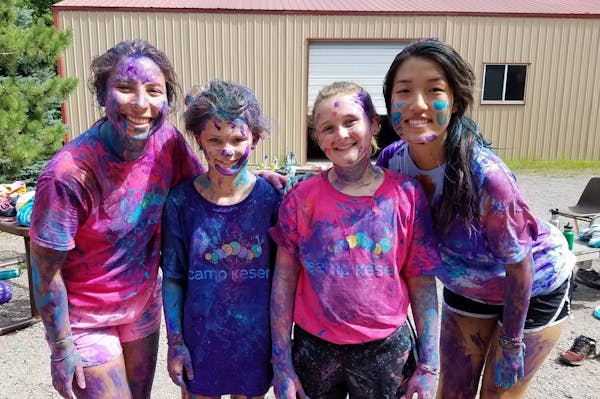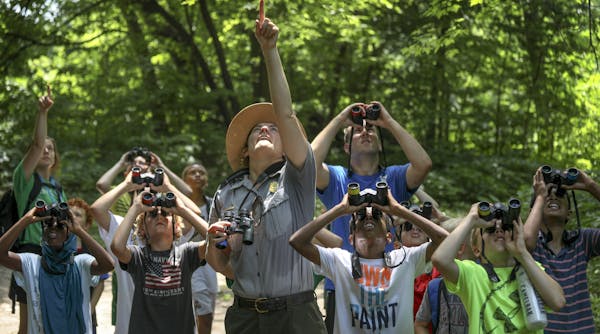If every picture tells a story, then it is the untold stories that Ceallaigh Anderson Smart is out to find.
The Robbinsdale mother and amateur photographer runs a charity with an unusual focus: traveling to impoverished countries to make photo portraits of people who don't have any pictures of their own.
"One way to love people is through a photograph," said Anderson Smart, who founded the "Print the Love" charity three years ago.
The idea first came to her five years ago while she was in Rwanda working for a nonprofit organization. One day, she grabbed her camera and headed out to take pictures of some neighborhood kids she'd met. She was struck by how curious they were to see what they looked like in the digital display on the back of her camera.
Most of the kids did not own a single photograph of themselves. There was not one baby photo or class picture and, certainly, no selfies. Not only were they without their own pictures, but they also didn't have any photos of relatives or friends.
This pained Anderson Smart.
"I can't imagine not having a photograph of my children, or of my mom, or of my best friend," she said. "I realized I needed to do this."
She returned to Rwanda a year later with an instant camera and a goal: to hand out 1,000 instant photos in 10 days.
The response was immediate and affirming. People cherished their photos and she quickly met her goal.
Today, Print the Love (printthelove.org) volunteers armed with Polaroid cameras travel to some of the poorest nations, where they visit schools, hospitals, and orphanages.
So far, Anderson Smart has led groups to Rwanda, Nepal and Bolivia. Her next trip — to Cambodia — is scheduled for November.
The snapshots they take capture a moment in time, but they do something more, Anderson Smart explains. They help record a person's life.
"It's really, really cool to just say that you were important, you were here on earth, and this is something personal," Anderson Smart said.
With time, such personal photos become even more precious.
"If you talk to anyone and ask them, 'What would you take with you if your house was burning down?,' they will tell you that they would take their pictures," Anderson Smart said.
Though she's not a trained photographer, pictures have always interested her. She studied art therapy, and outdoor and adventure education in college. She's married to a photographer and has a brother who is a filmmaker. A development manager at a local nonprofit serving the elderly, she volunteers for Print the Love.
She approaches her photography with a humanitarian's eye, hoping to forge a connection with the person on the other side of the lens.
"Our goal is to give them a really good picture in the place where they are," she said. "Really, it's more about saying you matter in the world, and this is a gift for you."
Among her most memorable interactions was one she had with a homeless man with few possessions. When they met, he reached into his pocket and pulled out two crumpled, wallet-sized photographs — one of himself looking much younger and dressed in formal attire, and the other, of him with someone else.
"He was so excited about getting another photograph of where he's been on his journey of life," Anderson Smart recalled.
Not once has she received a negative reaction from someone she's approached, she says, though some people do decline.
She reassures those she meets that the picture is for them, not her. She does not keep a copy.
Sometimes the photos serve a greater purpose beyond sentimental value.
She was once invited to a school, where officials were unable to offer students a class picture. They told her that if children get lost or stolen, there is no photographic record available to help find them.
The instant portraits are placed in thick, laminate sleeves that are UV protective so they will last for many years, Anderson Smart said.
Often, the discovery of what a Polaroid picture is elicits awe.
"We hand it to them. They hold it and don't know what to do with it," she said. "I say, 'Just wait. It's going to come.' Then when it starts to slowly show up, they get excited. It's like this whole process of them unwrapping a gift."
Federal appeals court overturns West Virginia transgender sports ban


